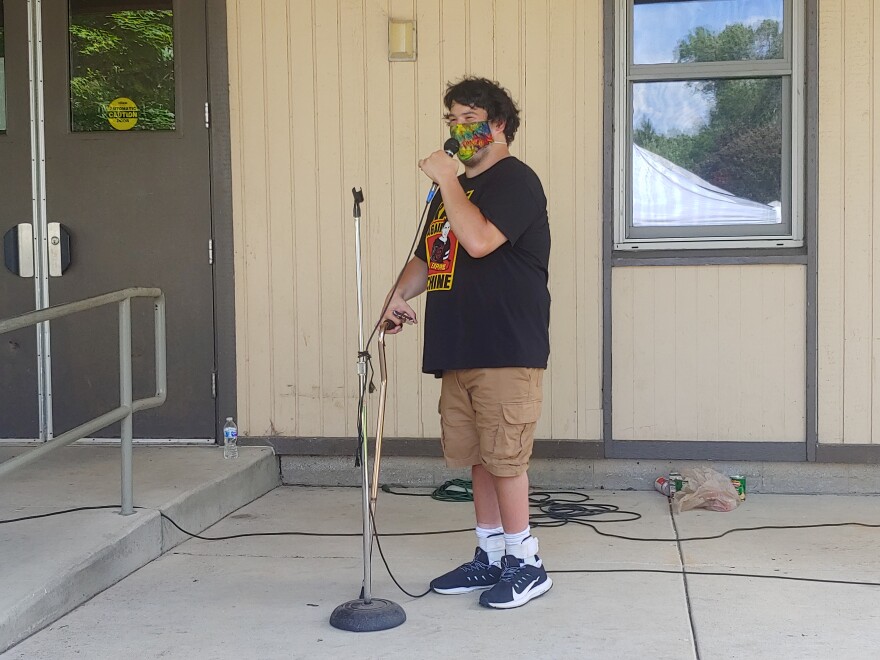It's been 30 years since the Americans With Disabilities Act (ADA) became law. Some community activists say there are similarities between the battle for disabled rights and the current effort for racial equality.
The ADA helped lead to things like more curb cuts, those little ramps built into concrete curbs at places like intersections. The 1990 law also did much more, of course, including banning discrimination against the disabled in public places.
But Harvey Ross not being nice to the disabled community remembers at the time:

"I can admit when I was walking around, I discriminated against people with disabilities. Made fun of them and everything else. And I think the universe was like, 'You think that is funny? Well, how about this? —Bye,' " Ross said.
What went "bye" in 1992 was Ross' ability to use his legs after being hit by gunfire. He now gets around in a wheelchair and has become an advocate for people with disabilities. He's also part of the Black Lives Matter movement. Ross says he sees a connection.
"In an ironic way, it all ties in together. The Americans With Disabilities Act piggy-backed off the civil rights movement. The same as the LGBTQ community. So, if we had that conversation, what is that telling you? These different boxes we've been put in, we're all fighting for the same thing. Which is equality,” Ross said to applause at a rally Sunday in Whitefish Bay. The rally marked the 30th anniversary of the ADA.

Another speaker, Khalil Coleman, has helped lead two months of marches for racial equality in the Milwaukee area. Coleman says marchers should support people with disabilities "because as the old saying goes, an injustice to one is an injustice to all.'
Coleman says it took a considerable amount of time to get the ADA passed. He says the local Black Lives Matter movement has already achieved some wins, and he promises to keep the effort going.
Coleman and Ross ended the event by taking turns chanting, "I believe that we will win! I believe that we will win!”





